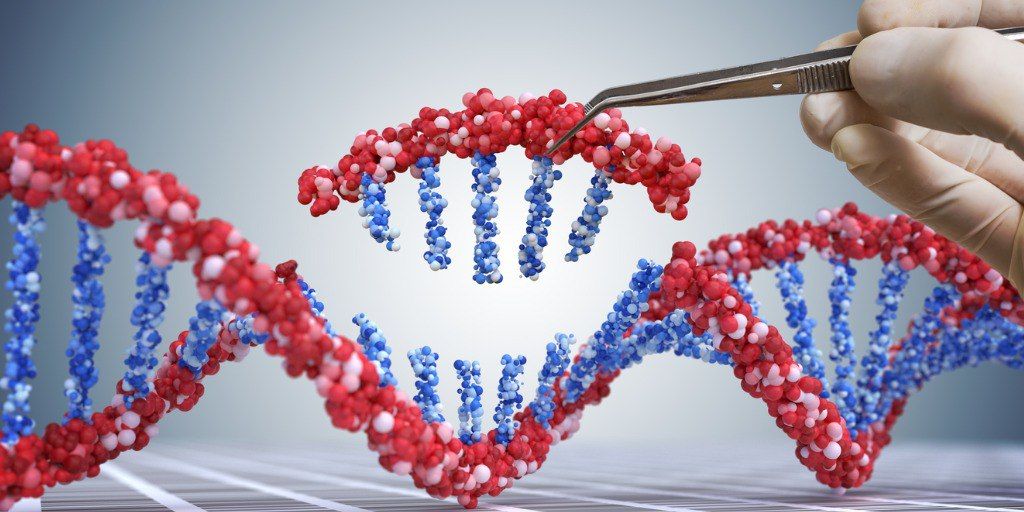
Genetic testing is a hot topic these days. Send in a sample of your DNA. Wait a few weeks. Then the results will tell you all sorts of information about your heritage, family history, and more.
At first blush, it seems great. Testing your genes to learn more about your health sounds like a no-brainer for everyone.
But it’s not that simple. Genetic testing is not for everyone. That’s why, at PartnerMD, before we recommend genetic testing for you, we make sure it will be valuable and effective.
Just like with anything related to primary care medicine, not everything can be offered with a one-size-fits-all approach, genetic testing included. And to understand why we need to start at the beginning.
Genetics 101
First, a quick biology refresher. Please note that we’re keeping this simple.
- Your body is made up of cells.
- Cells contain chromosomes.
- Chromosomes contain genes.
- Genes contain DNA.
- DNA provides specific instructions regarding the proteins your cells make.
- Proteins are the building blocks of life. Every part of your body — blood, bones, organs, hair, and so forth — has proteins.
You receive one set of genes from your mother. You receive another set from your father. In total, you could have anywhere from 20,000 to 30,000+ different genes.
All of your genes combined are known as a genome. Sometimes, genes have changes in the DNA known as variants. This is where genetic testing, also known as DNA testing, comes into play.

Genetic Testing: The Basics
Genetic testing looks for those variants in your genes, chromosomes, and proteins. Can we see which of your genes have variants? Can we make more informed health decisions with this information? That’s the ultimate goal of any genetic testing.
As the National Institutes of Health reports on its Genetics Home Reference page, “The results of a genetic test can confirm or rule out a suspected genetic condition or help determine a person’s chance of developing or passing on a genetic disorder. More than 1,000 genetic tests are currently in use, and more are being developed.”
So what happens if genetic variants are present? That’s where it begins to get complicated. Not all genetic variants mean something. Genetic variants might have:
- Little to no effect
- An unknown effect (“variants of uncertain significance” or VUS)
- Potentially adverse effects, meaning an increased risk for a certain disease or diseases
This is why doctors ask about your family’s medical history. It comes down to genes. If your parents or grandparents have heart disease, for example, this could suggest you are at greater risk since you might have inherited a gene putting you at greater risk.
The key word here is “could.”
After all, you might not have inherited the gene putting you at greater risk.
In fact, there might not even be a gene at play in this particular case, since other factors, like the environment (think toxins) or behavior (think diet) could be the culprits behind your family members’ heart disease.
What are the different types of genetic tests?
Tests can look at one gene, a bunch of genes, or even a person’s entire genome. All tests require DNA.
How a test accesses the DNA often depends on the test itself and/or what is being tested. Blood tests and saliva tests are common (we’ve all seen cheek swabs done on episodes of Law & Order).
Other fluids might be tested, such as amniotic fluid. In addition, different types of tests exist, depending on the purpose.
The Human Genome Project lists the following types of genetic tests:
- Diagnostic – Diagnoses the disease that’s making a person sick.
- Predictive – Determines whether a person is at increased risk for developing a certain disease.
- Carrier – Helps determine whether a person carries a genetic variant. This is especially helpful for family planning purposes since “some diseases require a gene change to be inherited from both parents for the disease to occur.”
- Prenatal – Screens the fetus during pregnancy.
- Newborn – Screens infants for certain diseases affecting development.
- Pharmacogenomic – Provides “information about how certain medicines are processed by an individual’s body.”
- Research – Involves participants whose results can help further understanding, additional research, and treatments.

Genetic Testing at PartnerMD
PartnerMD believes that the highest level of care is individualized, personal, and based on our knowledge of you as a person.
As it relates to genetic testing, we follow the directive of the American Medical Association’s Code of Medical Ethics. We encourage the most up-to-date and advanced genetic testing available only if there is effective therapy available to prevent or treat the condition tested for. We see little value in genetic tests that do not allow you to take action to reduce or change your risk for a particular disease.
In other words, our doctors recommend genetic testing when the pros of genetic testing outweigh the cons for your situation. We are a true partner in your health and will not promote genetic tests that will be uninformative or cause you more stress and anxiety about unknown or unlikely medical problems.
In addition, we recommend genetic counseling pre-testing and post-testing.
Before a test, you and your counselor should discuss motivations, possible outcomes, familial consequences, and so forth. After a test, your genetic counselor can help you make sense of the results — as well as your emotions surrounding the results.
If you’re still unsure, free to check out these resources for more information on genetic testing:
As a family medicine physician and Chief Medical Officer of PartnerMD, Dr. Jim Mumper brings over 30 years of experience in primary care. Every time he sees you, his goal is to show kindness and meet your needs. He co-founded PartnerMD to focus on personalized, preventive care. Dr. Mumper's leadership has been vital in establishing PartnerMD as a leading concierge medical practice dedicated to patient-centered care.
Topics:
